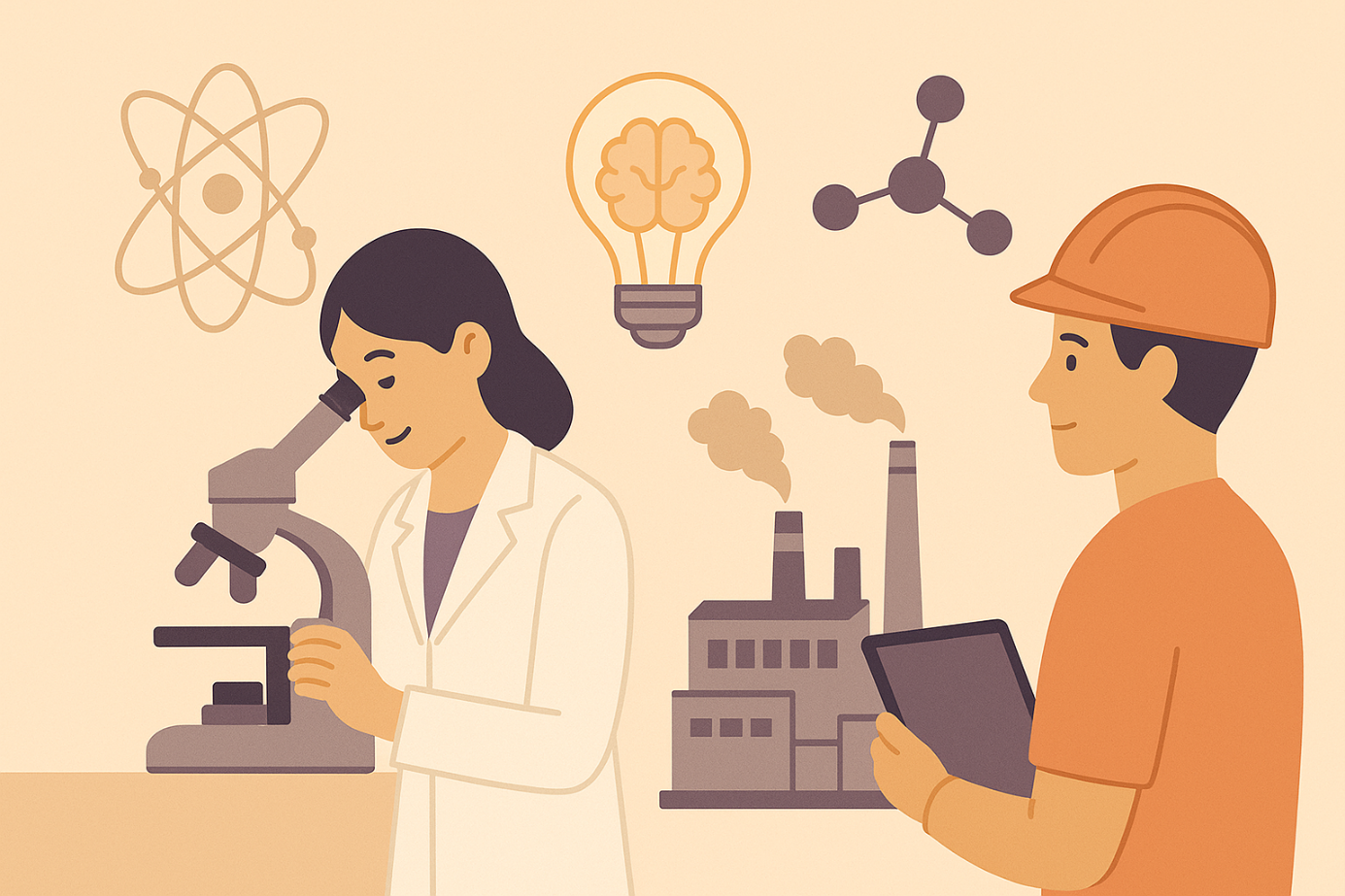

It is becoming increasingly clear that the competitiveness of regions and companies will be closely tied to their ability to generate, integrate, and apply scientific knowledge in an agile, effective, and strategic way.
Industry can no longer afford to grow based on outdated models or depend solely on established technologies. The pressure to innovate and respond to new social, regulatory, and market demands requires a profound transformation in which science and technology play a central role. Far from being a luxury, investment in science has become an unavoidable necessity to sustain industrial progress.
Now more than ever, we are facing a historic window of opportunity. The ongoing transformations — such as the energy transition, the digital revolution, population aging, or the climate emergency — demand radically new solutions. And those solutions will come, to a large extent, from scientific knowledge.
Investing in science means anticipating the future. It means preparing the ground for technologies that do not yet exist, training professionals for jobs that have not yet been created, and solving problems we can´t yet imagine. It also means building technological sovereignty, diversifying our economy, and reducing dependency on external actors.
Furthermore, we are living in a time when science has gained public visibility — especially following the pandemic — and there is a greater awareness of its real impact on people’s lives. This favorable perception should be leveraged to strengthen institutional, business, and societal commitment to science. It´s not enough to promote R&D from public administrations; science must be placed at the very heart of a country’s strategic decision-making.
A strong scientific system, connected to the industrial fabric, acts as an engine of transformation: it generates innovation, attracts talent, drives new value chains, and fosters the creation of high-potential startups and spin-offs. It also improves the resilience of the productive system and equips it with the capacity to adapt to future uncertainties.
In this context, betting on science is not just a matter of progress or prestige — it is a matter of industrial competitiveness. The regions that invest in science today will be better positioned to lead tomorrow’s strategic sectors.
In Europe, Euskadi stands out as a unique example of how to build an ecosystem where science and industry not only coexist but reinforce one another. Over the past decades, the region has developed its own model based on collaboration among technology centers, universities, businesses, and public institutions. This shared vision has made it possible to turn knowledge into a real tool for change.
The RIS3 smart specialization strategy, the focus on key areas such as energy, advanced manufacturing, or life sciences, and the consolidation of a network of scientific excellence centers have enabled growing synergy between research and the productive sector. In Euskadi, science is not disconnected from the business world; it is oriented toward solving its major challenges and opening up new market opportunities.
A good example is the work we do at CIC energiGUNE, where research in energy storage — batteries, solid-state technologies, thermal systems — is directly aligned with the needs of sectors such as automotive, electric mobility, and renewable energy. This early connection between science and industrial application accelerates technological development and maximizes its economic impact.
But beyond specific examples, what truly matters is the culture that has been forged: a culture of cooperation, long-term vision, commitment to talent, and dedication to a sustainable and innovative industry. This model did not emerge spontaneously, but as the result of a continuous strategy, sustained investment, and coherent public policies.
Euskadi proves that it is possible to build a country that believes in science as a lever for industrial development. A country that understands competitiveness is not just about costs but about knowledge. And that, even as a small territory, it can make a difference if it bets on excellence, collaboration, and shared vision.
Today, more than ever, science is industry. It is economy. It is well-being. And it is the future. Making it a priority is not only desirable — it is urgent. Euskadi has already begun that journey. Now it is time to deepen it, strengthen it, and share it.

If you want to know the latest trends in energy storage and new developments in research, subscribe.

If you want to join a top-level team, collaborate with specialists in multiple disciplines or tell us about your concerns, don't think twice...